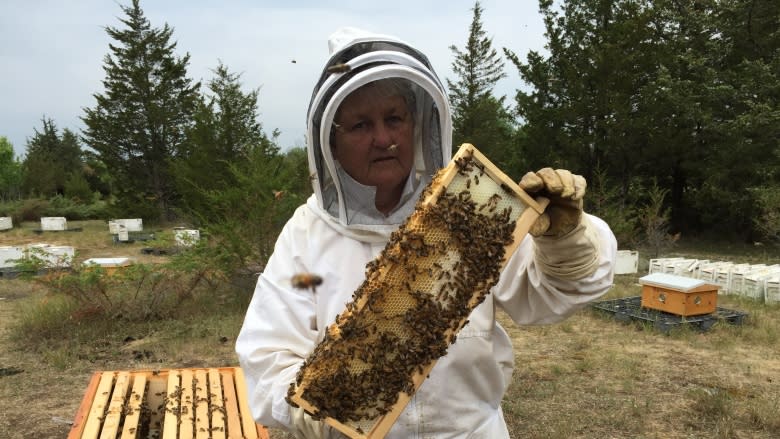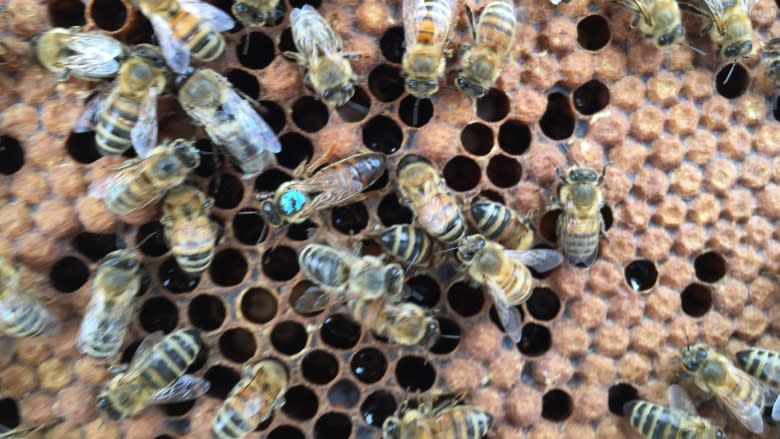Ontario beekeeper stung by late night hive heist
Debbie Hutchings tears up when she thinks about the theft of her honeybees.
"I've had a life with these bees," said Hutchings. "They came from England with my ancestors in 1848 and there's a long lineage of them and us. And these aren't just bees, they're our bees."
On Wednesday night, thieves stole $10,000 worth of honeybees from Hutchings' property in Portland, Ont., about 30 km southwest of Smiths Falls, Ont.
Hutchings, a fifth generation beekeeper who operates Debbee's Bees, says the culprits got away with more than just her insects.
"They had taken a bunch of my equipment and 10 big hives and the 16 nucs." Nucleus colonies — or nucs — are small bee colonies created from larger ones.
Hutchings now has about 30 large hives left which she will continue to use to breed more bees.
She said she doesn't believe the theft was committed by other beekeepers but suspects the thieves knew what they were doing.
"I think that there's maybe some rogue people who are taking the opportunity, who know about beekeeping [and] who've worked for beekeepers."
In June, thieves stole 30 honeybee hives from the Miels D'Anicet apiary in Ferme-Neuve, Que., and in December 2015, 30,000 bees were stolen from an Ottawa field.
"I'm telling myself right now, it is what it is but you're no quitter and you're going to keep on going," said Hutchings, holding back tears. "I have to kind of lay low and recoup for a while."
A valuable commodity
Tibor Szabo, president of the Ontario Beekeepers' Association, said honeybees are becoming a valuable commodity and thefts of hives do happen.
"There's a bigger demand for bees every year to help produce the food that require insect pollination. Nothing comes close to the honeybee for providing that service. They're rented from the beekeepers by the people that grow the crops."
Szabo said the monetary value of honeybees has also gone up because populations are shrinking.
"They are dying at a very alarming rate," said Szabo, who blames the use of certain insecticides common in agriculture and horticulture.
"[Their] monetary value has gone up in the past few years. "I would say they are at least double what they were just about four years ago," said Szabo.
Szabo said he doesn't believe theft is widespread, but beekeepers should still take precautions to protect their investment.
"Don't paint your hives a colour that people can see from far away. If they're attracting attention, it might not be good attention. Paint them a colour that blends into the environment."
Meanwhile, Debbie Hutchings said Rideau Lakes OPP are currently investigating the theft of her honeybees. She's called other beekeepers in the surrounding communities to warn them.



